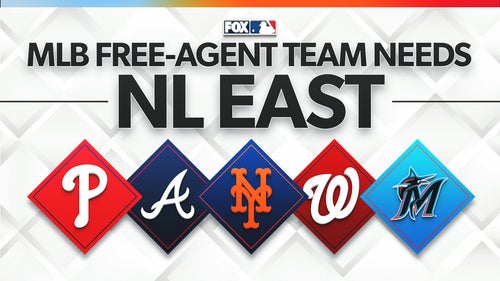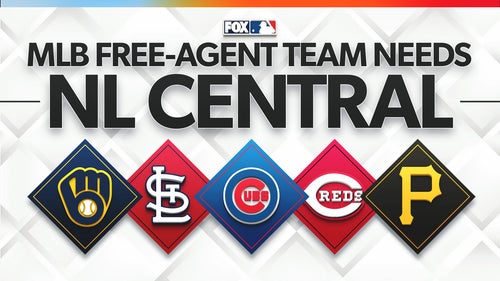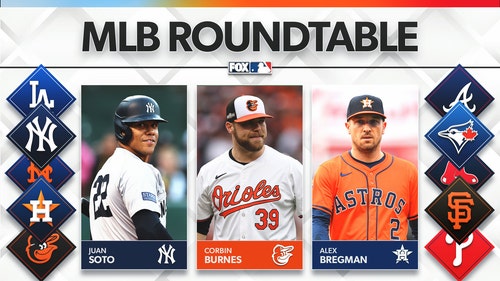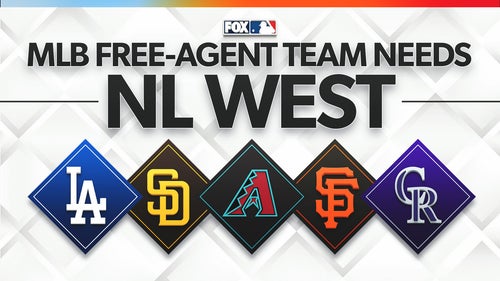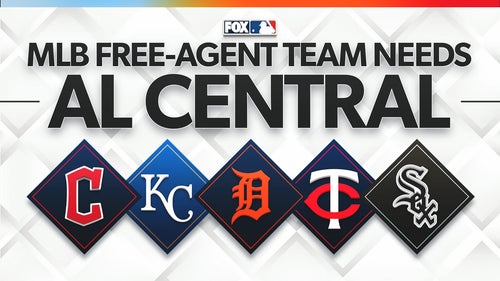Column: New rules push baseball into fast-paced world
Welcome to our fast-paced world, Major League Baseball.
There's still some catching-up to do, but at least our national pastime is moving toward the 21st century.
Ignore the inevitable grumbling from players and long-term fans (a.k.a. those who still believe World Series games should be played in the daytime) about new rules that are designed to speed up the game and create more action.
Baseball was in desperate need of a makeover if it was to have any chance of enticing new fans who don't qualify for an AARP card.
The only gripe should be: Why did it take so long to realize the games were boring and far too long?
"The game feels more exciting,” Washington Nationals pitcher Patrick Corbin said. “Even some of the high-scoring games are under three hours.”
Indeed, through the first week of spring training, there's a whole lot to like about pitch clocks and larger bases and limits on infield shifts.
Granted, we're only talking about a week's worth of games that don't count in the standings, and there's always the possibility of MLB slipping back into the same bad habits that slowed games to a crawl once we get to the regular season.
But the early returns from Florida and Arizona are extremely promising.
Games are shorter. Runs are up. The stolen base has actually become a weapon again.
And, get this: Even the most casual of fans are actually talking about baseball again.
“It is going to make it more exciting for the fans and allow them to be there for the entire game, because they are sitting there for 2 1/2 hours instead of four,” Milwaukee Brewers outfielder Garrett Mitchell said.
Through this past Tuesday, players were hitting .272 and producing an average total of 11.9 runs per game, compared to .259 and 10.6 runs at the same early point in spring training a year ago.
Even better, the much-needed offensive boost was not slowing down games — quite the opposite, in fact. Thanks to the pitch clock, the average game was completed in 2 hours, 39 minutes, a stunning 12% drop from the 3:01 it took to play a game during the same spring stretch in 2022.
The pitch clock — which allows 15, 20 or 30 seconds to make a pitch, depending on the situation, while the hitters must be set in the box with 8 seconds remaining — is going to take some getting used to, for sure.
But that's a small price to pay to avoid all the wasted time between pitches.
For far too long, we were subjected to hurlers relentlessly stepping off the rubber for no apparent reason, while hitters went through a numbing series of tics between every pitch — tugging at their gloves, adjusting their helmets, taking practice swings.
The biggest key is making sure the umpires enforce the timer without any leeway, especially when the regular season starts and a game could literally be decided by a pitch-clock violation.
We already saw that this spring, when Atlanta prospect Cal Conley thought he had won a game with a full-count, bases-loaded walk with two outs in the bottom of the ninth.
Instead, the umpire ruled he was not set in the box on time, resulting in a called third strike that left the game in a tie.
“I don’t think this was intended for a game to end like that,” Braves manager Brian Snitker grumbled to reporters.
Actually, there can be no backsliding on this rule if it's really going to work.
It must be like an NBA referee calling a 24-second violation even if it decides a game, or an NFL official throwing a flag for delay of game at a critical point in the contest.
Trust us, the players will adjust quickly if they know there are real consequences for abusing the clock.
“We’ll all get into the rhythm of it," Los Angeles Angels outfielder Jo Adell said. “There’s going to be a few violations here and there.”
Besides, the clock has a chance to create a whole new level of gamesmanship between pitcher and catcher, which is a lot more exciting than watching someone adjust their protective pad.
New York Mets ace Max Scherzer has theorized that the new rules give pitchers a chance to dictate the pace of games, though he went a little too far Friday while trying several unusual tactics to get Washington's hitters off their game.
At one point, he started throwing a pitch to Victor Robles the moment plate umpire Jeremy Riggs reset the clock. The ump called him for a balk.
“We have to figure out where the limit is," Scherzer said.
While the pitch clock has gotten much of the attention, the larger bases and limits on defensive shifts could have a more meaningful impact over the long haul.
No longer can teams shift most of their fielders to one side of the infield to stifle batters who've been taught in this money-ball era to swing for the fences on every pitch — but usually wind up pulling the ball into a stacked defensive alignment.
The cumulative batting average for the 2022 season was .243 — the lowest since 1968, when the “Year of the Pitcher” spurred baseball to dramatically lower the mound in an effort to spur more offense.
The limits on shifts should've been a no-brainer, given how prevalent they've become.
Defensive shifts on balls in play totaled 66,961 last season, according to Sports Info Solutions, a staggering 28-fold increase over the 2,349 shifts that were recorded just 11 years earlier.
It remains to be seen if the larger bags — they have increased from 15- to 18-inch squares — will lead to a significant increase in the number of stolen bases. That extra size means they're all a few inches closer, turning things in runners' favor on bang-bang plays.
MLB had to try to find a way to make speedy legs as much a part of the game as bulky arms, after the total number of homers (5,215) more than doubled stolen bases (2,486) a year ago.
Thirty years ago, at the dawning of the steroids era, stolen bases (3,264) actually eclipsed home runs (3,038).
Both plays are thrilling parts of the game. Baseball is better when they are on more level footing.
We'll see how it all works out, but kudos to MLB.
At least they're moving into the 21st century.
A step in the right direction.
___
Paul Newberry is the national sports columnist for The Associated Press. Write to him at pnewberry(at)ap.org or at https://twitter.com/pnewberry1963
___
AP freelance writers Gary Schatz and Jack Thompson in Arizona contributed to this column.
___
AP MLB: https://apnews.com/hub/mlb and https://twitter.com/AP_Sports



